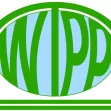Transportation Demand Management

When it Comes to Vehicle Travel, Less is More
Motor vehicle travel provides many benefits, but also imposes large costs on users and communities. With better planning people can drive less, rely more on non-auto modes, enjoy more access, and be better off overall as a result.

Vehicle Miles Traveled as a Metric for Sustainability
Motor vehicle travel benefits users but also imposes large economic, social, and environmental costs. With better planning, our needs can be met with less vehicle travel. A new ITE report describes why and how to optimize the amount we drive.

Leveraging Holistic Platforms For Urban Mobility Solutions
How a ‘control tower’ approach can improve mobility and reduce congestion and emissions.

Watch Out for Green Class Backlash
Low emission zones, like that implemented in London, face backlash from critics on all sides of the political spectrum for impacting the poorest drivers and putting a burden on small businesses.

What Is Transportation Demand Management?
When a government creates incentives or disincentives to influence how and when you travel—that's transportation demand management.

Tennessee Approves Toll Lanes as Part of Transportation Package
Despite decades of resistance to tolling highway lanes, the Tennessee legislature passed a bill that authorizes the creation of ‘choice lanes.’

Increased Service, Employer Tax Breaks Entice Transit Ridership in Montgomery County
Montgomery County, Maryland transit planners are hoping workers returning to the office in 2023 will rediscover the benefits of a public transit commute.

Burlington Could Eliminate Parking Requirements Citywide
A proposal to eliminate parking minimums in the entire city would also expand Burlington’s Transportation Demand Management program.

ITDP's New On-Street Parking Pricing Guidebook
This report explores strategies for efficient and equitable parking management with an emphasis on pricing. These strategies enable cities to reallocate space for bus lanes, bicycle lanes, wider sidewalks, and pickup zones, and generate revenue.

Toolbox for Mobility Management
The Toolbox for Mobility Management provides easily understandable information and practical advice to those who want to introduce Mobility Management into various institutions including kindergartens, schools, companies and urban developments.

Clean Vehicles Versus Vehicle Travel Reductions: Better Transportation Emission Reduction Planning
There are many possible ways to reduce transportation emissions, some of which provide large co-benefits. Unfortunately, current evaluation practices tend to overlook some of the best. Lets examine why.

To Save the Climate: Driving Habits Must Change
Even with ambitious electric Vehicle adoption, the United States must reduce vehicle miles traveled by 20 percent before the end of the decade to limit warming to 1.5°C, according to new research by the Rocky Mountain Institute.

Buffalo Development Will Feature the City's First Mobility Hub
The project, which is located near light rail and bus stations, will also include a ride hailing zone, bike parking, and improved pedestrian facilities.

Reducing Car Trips in L.A.: Transportation Demand Management Ordinance Could Be Expanded
The proposed expansion would affect smaller multi-family developments and include incentives for reducing travel during peak hours and encouraging transit, walking, and biking.

Denver City Council Considering Transportation Demand Management Plan
If approved, the proposed regulations would require developers to implement policies to reduce single-occupancy vehicle trips for new developments.

Reversing Car Dependency
A new report examines how governments can encourage citizens to use alternatives to private cars in order to reduce car dependency.

Virginia DOT Bound by New Law to Study Transportation Demand Management
A new requirement for the Virginia Department of Transportation took effect on July 1. The state's transportation planners and engineers now must study Transportation Demand Management as an approach to congestion management.

Overcoming the Obstacles to Congestion Pricing
The technology for congestion pricing already exists. The leadership and vision required to implement congestion pricing is still a work in progress, according to a report.

All Vehicle Traffic Imposes Danger. Vision Zero Requires Vehicle Travel Reduction Policies
Traffic safety initiatives must recognise that all vehicle travel imposes risks, and traffic reduction policies increase safety in addition to other benefits.

The 'War on Cars' Is a Bad Joke
There is no war on cars. Everybody, including motorists, benefit from a more diverse and efficient transportation system. Let there be peace!
Pagination
City of Madera
City of Santa Clarita
Borough of Carlisle
HUD's Office of Policy Development and Research
Chaddick Institute at DePaul University
HUD's Office of Policy Development and Research
Colorado Energy Office
Pima County Community College District
City of Piedmont, CA
Urban Design for Planners 1: Software Tools
This six-course series explores essential urban design concepts using open source software and equips planners with the tools they need to participate fully in the urban design process.
Planning for Universal Design
Learn the tools for implementing Universal Design in planning regulations.



















.png?itok=e498Jk4q)

.png?itok=yhtuTpjq)











